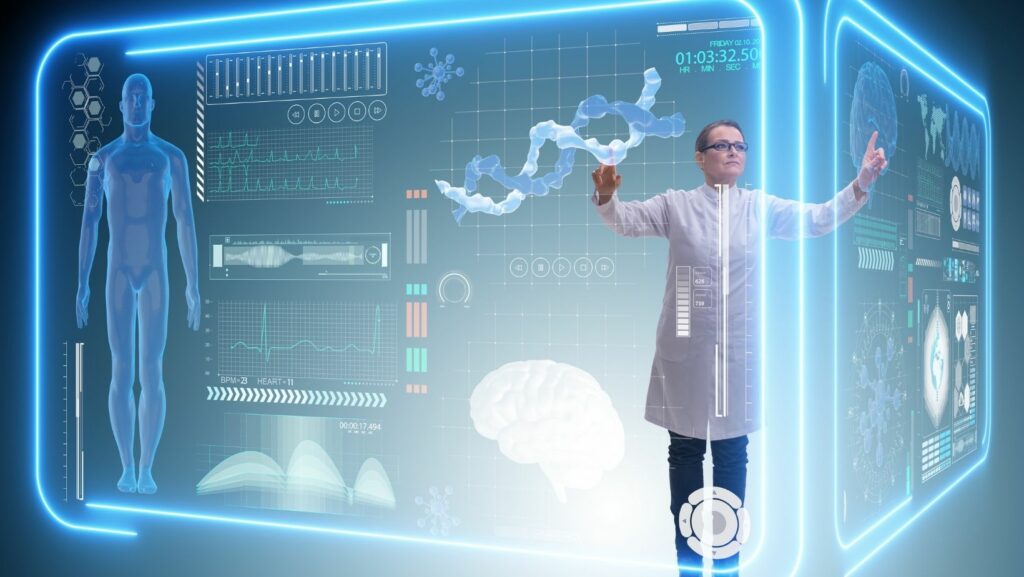
Artificial intelligence (AI) has revolutionized the healthcare industry, with its impact factor reaching new heights. The intersection of AI and health has paved the way for groundbreaking advancements in diagnostics, personalized treatment plans, and predictive analytics. From streamlining administrative tasks to enhancing patient care, AI’s influence is palpable across all facets of healthcare delivery. Healthcare providers are leveraging AI algorithms to analyze vast amounts of data swiftly and accurately, leading to more precise diagnoses and improved patient outcomes. The integration of AI technologies not only enhances the efficiency of healthcare processes but also plays a pivotal role in driving innovation and transforming the future of medicine.
Artificial Intelligence In Health Impact Factor
Artificial intelligence (AI) has transformed the healthcare industry, enhancing diagnostics, treatment plans, and predictive analytics. It enables healthcare providers to analyze data swiftly and accurately, leading to more precise diagnoses and improved patient outcomes, thus driving innovation and transforming the future of medicine.
Improving Patient Outcomes
By leveraging AI technologies, healthcare providers can offer more personalized and targeted treatment plans tailored to individual patients. This approach leads to improved patient outcomes, as treatments are optimized based on the patient’s specific characteristics and medical history, ultimately enhancing the quality of care provided.
Impact Factors of AI in Healthcare
Artificial intelligence significantly influences healthcare through various key factors.
Speed and Accuracy of Diagnoses
AI enhances the speed and accuracy of diagnoses in healthcare. By swiftly analyzing vast amounts of data, AI algorithms aid healthcare providers in reaching precise diagnoses promptly. For example, AI systems can quickly process medical images like X-rays and MRIs, assisting in the early detection of diseases and improving patient outcomes.
Cost Reduction in Healthcare Services

One crucial impact factor of AI in healthcare is the reduction of costs in healthcare services. By streamlining processes and optimizing resource allocation, AI can help healthcare facilities operate more efficiently, leading to cost savings. For instance, AI-powered predictive analytics can identify opportunities for cost reduction by predicting patient admissions, optimizing staff schedules, and managing inventory effectively.
Ethical Considerations in AI Health Innovations
In the realm of artificial intelligence (AI) transforming healthcare, ethical considerations play a vital role in ensuring the responsible deployment of these innovations. Two key ethical aspects that demand attention in AI health applications are privacy concerns and bias and fairness in AI algorithms.
Privacy Concerns
In AI-driven healthcare initiatives, safeguarding patient data and privacy is paramount. Healthcare providers must implement robust data security measures to prevent unauthorized access or misuse of patient data. Transparency regarding data collection, storage, and usage is essential to instill trust among patients and comply with privacy regulations such as HIPAA.
Bias and Fairness in AI Algorithms

Another critical ethical consideration in AI health solutions is the mitigation of bias and ensuring fairness in algorithmic decision-making. AI algorithms are susceptible to biases present in training data, potentially leading to discriminatory outcomes in healthcare practices. Addressing bias requires thorough data screening, diverse data representation, and ongoing algorithm monitoring to detect and rectify biases. Ensuring fairness in AI algorithms involves regular audits, transparency in decision processes, and continuous refinement to promote equitable healthcare outcomes for all individuals.
Integration Challenges of AI in Existing Healthcare Systems
Integrating artificial intelligence (AI) into existing healthcare systems presents several challenges that need to be addressed for successful implementation. These challenges can impact the efficiency and effectiveness of AI applications in healthcare settings.
- Legacy Systems Compatibility: Ensuring compatibility with legacy systems is crucial as many healthcare facilities still rely on outdated infrastructures. Upgrading or modifying these systems to integrate AI seamlessly is essential for maintaining workflow efficiency.
- Data Security Concerns: Protecting patient data is a top priority in healthcare. AI implementation must comply with stringent data security regulations to prevent unauthorized access and ensure patient confidentiality.
Addressing these integration challenges is imperative for leveraging the full potential of AI in healthcare systems. Overcoming these obstacles will enable healthcare providers to optimize patient care, enhance decision-making processes, and improve overall efficiency in delivering quality healthcare services.



